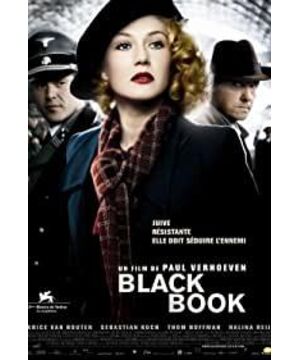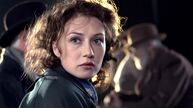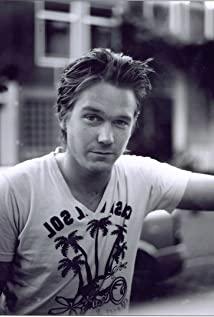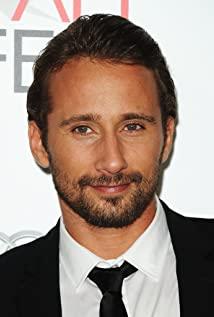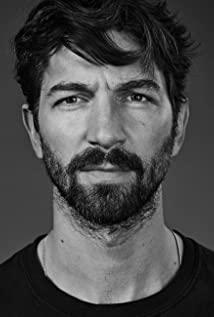World War II is a subject that can give filmmakers countless inspirations. However, it is not easy to stand out among countless films with this grand background. The success of this film lies not only in the ups and downs of the plot design, but also in the reality and objectivity of the psychology and behavior of the various people it has shaped in that particular period. There is no perfect image of high completeness, and there is no blackness. The moral label is white, there is no artificial tear gas, and there is no empty preaching in general. What is left is the turbulence and profound and long aftertaste in the throat, which makes people can’t help but reflect. This is the sincerity of the director of the film. , It also reflects the solemnity and solemnity of the director for nearly two decades of co-constructing and preparing this film.
Unexpectedly, this film with humanistic realism came from the hands of the Dutch director Paul Van Hoven, who is famous for directing "Instinct" and "Star Wars". I can't help but admire him. It turns out that I left Hollywood. The choice of entertainment to return to my heart is very wise. Van Hoven is good at a variety of movie genres, whether erotic films, science fiction films or thrillers are quite experienced. In this film, he did not abandon the usual structure, but used a relative difference from the commercial films he made in the past. Conservative expressions, fragrant but not vulgar and superficial, violent but not bloody, thrilling but not publicly stimulating, the narration process is full of tension and appeal, and at the same time Van Hoven shows strong rhythm control ability, which makes the film more exciting. This is also one of his great strengths, even in "Transparent Man" (this is probably the only film of him I have seen before) such bad films have not been lost. Here also I have to mention Van Hoeven’s old partner-screenwriter Gerald Schuytmann, whether it is Van Hoeven’s famous work "Under the Nazi Army" or this "Frightening Black Book", he has contributed a lot. No, if the "Transparent Man" is handled by others, the plot must not be outrageous to the extent of being vulnerable.
Life in the age of war is dangerous but not free. Everyone is looking forward to the opportunity to completely relax their breath. Everyone will face an involuntary choice. Lean’s destiny is extravagant, and the throat of fate is held firmly by the invisible hand. Pinching, lingering and panting, there is the possibility of suffocation at any time. As a result, some people are opportunistic, some are betraying their country for glory, some are swallowing their voices, and some are rebelling. The beauty, ugliness, good and evil of human nature are exposed to reality and truth, or brilliant light, or dirty and rotten, stage after scene of thrilling sentient beings.
Alice is a Jewish girl. Although she lives in a small attic and has to memorize the Bible in exchange for food, she always maintains a pure heart. She is sexy, charming, lively and playful, positive and optimistic, loves life and music, and is easy to believe People, but the experience of her family being tragically killed by the Germans completely changed her life trajectory, and the other side of her personality was immediately unearthed. She endured the humiliation, went deep into the enemy camp, exchanged her beauty and wisdom for the enemy’s trust, and successfully completed the tasks assigned by the organization. In the process, she gradually transformed into a courageous warrior, but she did not expect The real test has just begun. The hero is framed as a traitor, but her former partner who fought side by side now puts her to death. She has a hint of weakness in her heart. She is afraid that after liberation, she will become a public enemy despised by the whole people, but she did not shrink from it. She must identify the real traitor, rectify her name, and seek justice for the dead family and companions. It is this belief that supports her not to give up even when facing desperation. Alice is like a black tulip swaying in the wind and rain, struggling to survive with blood and tears, but she can't conceal her extraordinary temperament and undefeated will.
The heroine Carice van Houten successfully portrayed this complex character. From simple and kind to calm and bold to tough and strong, Alice in every stage is interpreted by her with subtleties, sometimes delicate and restrained, sometimes agitated and bursting, with a freely retractable performance. It's amazing. Two of the performances impressed me in particular. One is the scene of Alice being insulted by the jailer. She was stripped of her shirt, not humbled and hugged her chest like other women, but with a magnificent and noble head, staring straight at the other person’s face, with a solemn speech. Refusal to sing, she defended her dignity with a weak body, and her stubborn eyes were full of perseverance, fearless, mighty and unyielding arrogance, full of powerful resistance, and I was deeply impressed. The second is Alice's reaction to learning that Muntz was executed. The heartbreak and sadness after the shock instantly enveloped Alice. She sobbed and growled, shaking her whole body uncontrollably, the pain was like being brutally attacked by a sharp knife. Piercing the heart fiercely, blood flowed endlessly from the wound, consuming the last will to survive. Finally, Alice, who was on the brink of collapse, was unable to control her emotions and shouted desperately: "When will she be the head!" "At this moment, tears were almost streaming from my eyes.
Faced with the scale that determines fate, everyone has the right to choose, and everyone must be responsible for their choice. Prison contractors can choose the latter between bullets and post-war medals without hesitation, because the latter is a win-win option that saves lives and earns honors with a small amount of effort. There is no reason for anyone to refuse, but they are arrested. What confronts the members of the resistance organization is a cruel battle that cannot have both fish and bear paws-bullets or betrayal? Give your life for your faith, or give your soul to your life? Hans pretended to excuse Alice, but he was actually making excuses for himself, and his answer was obviously the latter. As a member of the resistance organization, the danger of losing one's life at any time has been foreseen long ago, but when it comes to life and death, how many people can consistently guarantee their loyalty and loyalty. For example, Tim, after experiencing brutal torture to extract a confession, he unbearably confessed his father Geben, but he still can't escape a execution order. Sometimes he has this question: Should he be condemned? Is the hat of betrayal on his head too harsh? I can’t judge such a tormented person with a high profile, but it’s undeniable that a virtuous, shameless, insidious, treacherous, cruel and vicious bastard like Hans committed an intolerable crime that cannot be eliminated by any excuse or sophistry. Doubt.
When Alice was exhausted physically and mentally by the disaster of prison, the true traitor Hans was happy and happy. He was treated as a people’s hero against fascism and Nazis, enjoying the cheers, admiration and support of the people. The world is so ironic, and the truth is revealed. At that moment, it made people feel nauseous like swallowing flies. The reason why the audience’s attention was focused on the lawyers was obviously that they were lured by the director, which greatly increased the suspense content of the story. The black book, which is the key point of the title, was unconsciously ignored and forgotten in the process of watching the movie. It appeared decisively until the end. It was unexpected and reasonable, and I had to sigh the director's brilliance. Of course, in retrospect, Hans's rebellion was not without a trace, foreshadowing and clues have already been ambushed in it.
One is the kidnapping of Fan Hyung. As a doctor, Hans made a low-level mistake by using an anesthetic that had expired for three years. As a sharpshooter in the shooting club, Hans fired a few shots at Van Hen and none of them hit. If you consider the cause and effect together, you will find that everything is It was a conspiracy of Hans. The first is the passage that Hans persuaded Alice to kidnap Van Hyung, saying that the kidnapping can both torture the suspects who have lured the Jews without making Franken suspicious. It stands to reason that this good method of killing two birds with one stone will get you when you say it at the meeting. Everyone supported him, but he decided to act privately. It can be seen that he had planned to kill Fan Hyung a long time ago, to protect his identity from being exposed, and to destroy the private agreement between the captain and the resistance organization. The second is the specific implementation process. Here he used the devout Christian Tio. When Fan Hyung was so angry that he resisted with all his strength and wanted to put Hans and Alice to death, the neurotic and emotionally fluctuating Tio was stimulated and opened. The gun killed Fan Hyung, which is considered to be a murder with a knife.
The second is the robbery. There is a scene in the film where Hans's mouth is raised inconspicuously when he is in the cell, with a little contempt, a little ridicule, and a little smug. He must have discovered where the German army is hiding by then, so he started on both sides. When confronted, his position was closest to the exit, and behind his companion, which meant that his companion became his human shield, helping him to retreat. At that time, he had a chance to rescue the last person, but he did not extend a helping hand to him, causing his companion to shoot multiple shots to death. The only question here is how Hans made sure that he was not accidentally killed by the Germans. If he used an excuse not to participate in the robbery before setting off, there would be no worries, right? I can only guess about it. It is appropriate not to be suspected. Excuses are not easy to find. Secondly, he is very confident in his marksmanship, skill and overall plan, and does not think there is a possibility of accidents.
The last thing that is easy to miss is about insulin. The conversation between Hans and Alice before ooxx is not only paving the way for Alice to save herself by eating chocolate, but also opens another corner of Hans. When Alice asked him what he wanted so much insulin for, he said that this was a secret that could not be revealed, which made people doubt the true effect of these insulins. Hans's attempt to kill Alice with insulin is probably not accidental, but a habitual method. In Hans's hands, insulin has always existed in the name of an efficient, safe and secret killing weapon. There is another possibility. During the war, insulin was scarce and demand was high. Hans sold insulin through the black market to make a high profit. Therefore, Hans scolded the phrase "the hospital is happy" when he found that the insulin was broken in half. It's easy to understand.
There is a silverfish like Hans who betrays his conscience for his own personal interests in the division of justice, and there are also humane pacifists like Munz in the German SS who could have lived in secret with Alice, but they were shot because of their open personality. End. However, whether black or white is right or wrong does not lie in the position, the stand, and the result obtained. The dark side of human nature is still the ugly and insignificant essence even if it is presented in the face of noble justice or in the name of justice. Winners and losers have been like this since ancient times. When a traitor is paraded, cut or even exposed, when a gangster jailer insults and tramples on the dignity of prisoners, what is morality and what is human rights are completely determined by the prevailing interests. The only disadvantaged groups are Unconditional obedience. Jieyun "good and evil will eventually be repaid, not that it is not repaid, but the time has not come", but never thought about who will repay and how to repay, but what is certain is that good and evil are only on the front line, when the so-called "good" "Punishing the so-called "evil" in their eyes in a way that lacks humanity, then "good" is not far from "evil".
In addition, the film did not evade some historical and political issues, and some additional issues that were raised are worth thinking about. For example, during the war, no matter what your beliefs are, the Queen of the Netherlands, Jesus or Communism, as long as you do not believe in Hitler and Nazis, you belong to the righteous side and can unite to fight together. However, after the war, as a partner in the Anti-Japanese War The communists have become the common enemy of the defeated and the victor, and the world's political landscape has also begun to change trends. In the debate about whether to kill Franken or not, racist seeds also emerged. Ge Zizhen asked Alice, "Is the life of any Jew more precious than a good Dutchman?" It can be seen that many thoughts are temporarily hidden. Doesn’t mean it doesn’t exist.
Where there is a country, there is a struggle for political power, and some people have conflicts of ideas and concepts. "I and you are connected to my heart and live in the global village." True peace, equality, one family under the world, and harmonious coexistence only exist in good wishes. This is Helpless and cruel reality. As the end of the film hints, on the surface, the warm scene of Alice returning home with her husband and two children is comforting, but we cannot ignore the state of guard that the army is stationed in the collective farm. In October 1956, the second Middle East war broke out. Even Kefar Stein was founded by Alice with the Jewish Victims Fund of World War II. It's Alice's last name) can't be alone, it's really ironic. "When the hell is the head!" Alice's bleak and helpless cry came to mind again, sighing.
View more about Black Book reviews


